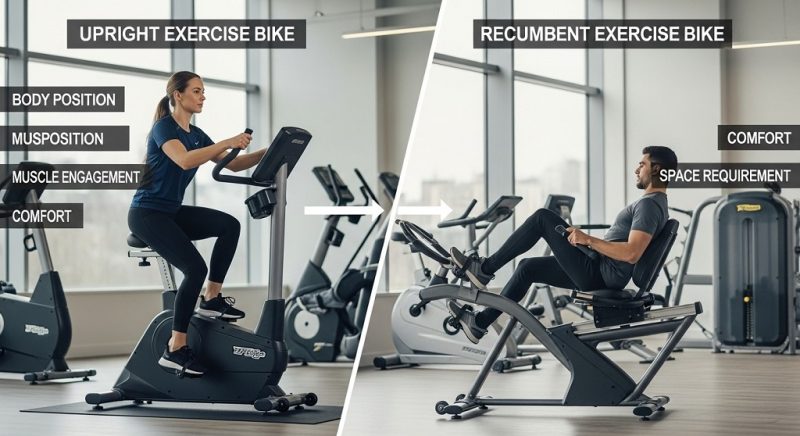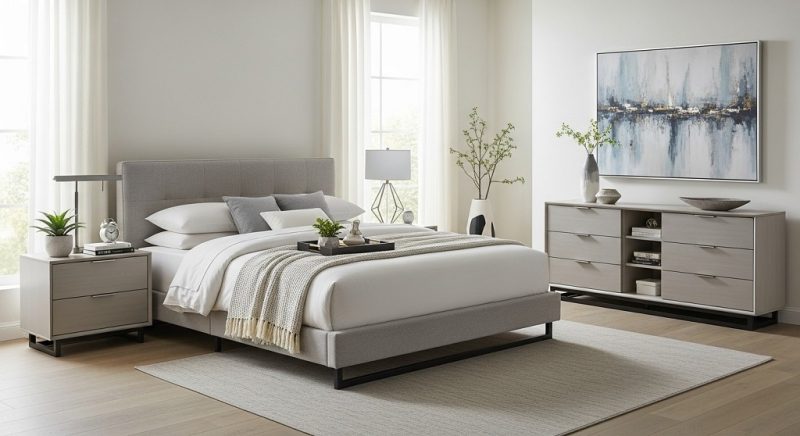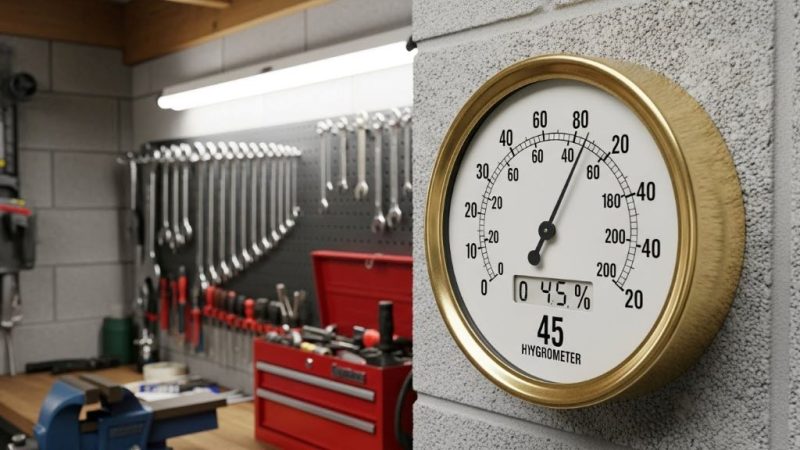You stand in your workshop, ready to cut perfect curves into plywood for that custom shelf you’ve planned all week. The jigsaw hums with potential, but you pause. Which type do you grab? Choosing the right jigsaw transforms a frustrating task into smooth, enjoyable work. This versatile power saw excels at intricate curves, straight cuts, and plunge cuts in wood, metal, plastic, and more.Continue reading →
Power Tool Buying Guide: What to Look for in a Jig Saw
Imagine you hold a tool that turns a simple sheet of plywood into an intricate curve or a perfect circle. That tool is a jig saw. Woodworkers and DIY enthusiasts love it for its versatility. It handles detailed cuts that other saws simply cannot match.Continue reading →
How to Compare Upright vs Recumbent Exercise Bikes
Upright bikes mimic outdoor cycling and focus on performance and calorie burn, while recumbent bikes offer back support and comfort with lower joint stress.
Choosing an exercise bike looks simple. Until you face the real question: upright or recumbent? Many buyers make the mistake of picking based on looks or price. That often leads to discomfort, low usage, and wasted money.Continue reading →
How to Weed Your Garden Efficiently Using the Right Hoe
Weeds invade every garden. They steal water, nutrients, and sunlight from your plants. You feel frustrated when they take over. However, you can regain control quickly with the right approach. Gardeners spend an average of five hours per week tending their plots, and weeding often claims a large share of that time. In addition, nearly half of all gardeners want to spend less time on this chore. You can cut that effort significantly when you choose the perfect hoe and use it well.Continue reading →
How to Choose the Right Modern King Bedroom Set
What is a modern king bedroom set and why does choosing the right one matter?
Modern king bedroom sets are coordinated furniture collections designed for king-size beds, focused on clean lines, functional layouts, and space efficiency. A typical set includes a king bed frame, nightstands, and a dresser, with some sets adding wardrobes or chests.Continue reading →
How to Rent a 3 Bedroom Apartment Without Overpaying
Renting 3 bedroom apartments means securing a home with three separate bedrooms under a lease agreement, usually shared by families, roommates, or people working remotely who need space. On paper, it sounds simple. In reality, many renters pay 15–30% more than market value because they rush decisions, ignore local data, or misunderstand lease terms.
The biggest problem is not rent prices alone. It’s lack of strategy. Most renters focus only on listings, not negotiation power, timing, or hidden costs. A 2024 housing market study by Zillow showed that renters who compared neighborhoods and negotiated lease terms saved an average of $2,400 per year on larger apartments.Continue reading →
How to Grow Your Own Cut Flowers for Bouquets and Arrangements
Home-grown flowers smell amazing. Moreover, they make an excellent decoration or gift. Therefore, if you take up gardening as a hobby, obviously you’ll have a very rewarding activity at your hands. What’s even better is that all your hard work will help the environment immensely.Continue reading →
How to Control Garage Humidity for Rust Prevention
Rust can destroy your tools, car, and equipment faster than you think. However, controlling garage humidity is your best defense against this silent destroyer. Many homeowners overlook their garage environment until damage appears. Therefore, understanding humidity control becomes essential for protecting your valuable belongings.Continue reading →
How to Renovate an Office in Dubai: Latest Trends & Tips
What does it mean to renovate an office in Dubai?
Office renovation in Dubai means upgrading an existing workspace to improve functionality, comply with local regulations, and support modern work styles without relocating.Continue reading →
Dog Oral Health Treats: Easy Daily Solutions for Healthier Teeth
Imagine your furry friend flashing a bright smile during playtime. Yet, many dogs suffer from dental problems that steal their joy. Dog oral health treats offer simple ways to keep teeth strong and breath fresh. These treats turn routine care into fun moments. Plus, they tackle plaque and tartar buildup effectively.Continue reading →










